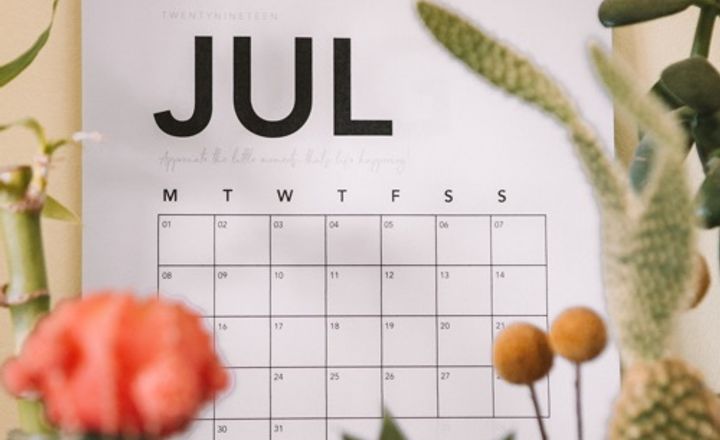Second Payment on Account Deadline is 31 July
Time flies when you’re having fun - and when you’re focussed on running your own business the months can rush by faster than you anticipated, meaning that things slip down the to-do list waiting for the right time to be actioned. I’ve written about payments on account before - but here’s why it matters today:

The most important date for your diary this month is 31 July - the second payment on account towards the 2018-19 tax year. Everyone knows that 31 January is the deadline for submitting your tax return and making a payment - but 31 July is just as important to ensure that you submit your second payment on account and avoid accruing interest on what you owe.
What does ‘payment on account’ mean?
To help those starting out in business set up and earn as a sole trader, HMRC don’t charge tax as you earn (the way you pay it in employment, taken monthly from your salary) - instead you pay by the 31 January in the year after your first tax year ends, so if you started your business in October 2017 your tax year runs from April 2017 to April 2018; this meant you had nothing to pay until January 2019 - which was a great help when you started out.
What you also had to pay by January 2019 was the first payment on account. This uses your tax return to estimate what you’ll earn in the next tax year - and you need to pay half of that by that first tax date too. The July payment is the balance of that estimated amount - and your tax return at the end of the year clarifies that estimate, and you pay the difference in the next January.
It’s simpler than it sounds, and HMRC are aiming to help new businesses to get established, and spread the cost of the tax payments so that you can put money aside throughout the year.
Does everyone need to make payments on account?
Not everyone - but if your self assessment bill is over £1,000 you will need to make payments on account.
It is also only relevant if less than 80% of your tax was deducted via PAYE; a lot of those starting out in business are still employed in another role, relying on the security of that income while the freelance or self-employed business gets established enough to secure reliable income.
It seems like a lot to pay in one lump sum that first January - but if you’ve been managing your income properly you can plan in advance and set aside the sum you might expect to pay.
Remember that if you’re unsure how your tax payments are decided, and what you can legally claim as expenses to reduce the tax you pay, I can help. I can also help you to track this throughout the tax year, manage your books and set aside enough to cover the payments.
If the thought of taxes makes you feel stressed and you are looking for support give me a call or pop your details in the contact form so we can talk through what I can do to help - and sign up to my newsletter if you’d like more advice throughout the year.
